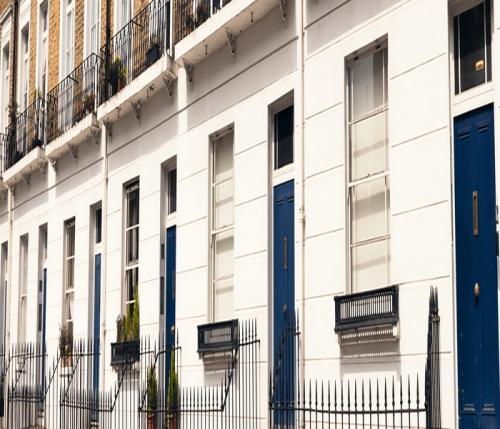5 Unoccupied Probate Property Insurance Pitfalls to Dodge Now

Navigating the complexities of probate can be difficult for estate executors. Among the various tasks, ensuring that any vacant properties are properly insured is critical. Unoccupied probate homes provide particular insurance problems, which can lead to costly hazards if not managed appropriately. From coverage gaps to higher rates, these are five insurance traps to avoid when dealing with vacant probate homes.
Failure to Inform the Insurance Provider
One of the most typical mistakes made when dealing with vacant probate homes is neglecting to notify the insurance company soon. Many basic householders’ insurance plans have stipulations that limit coverage for vacant properties, often after 30 or 60 days of vacancy. If the insurance provider is not notified of the property's empty status within the necessary deadline, coverage may be invalid, exposing the estate to large financial losses in the case of damage or liability claims.
To prevent this trap, tell the insurance company as soon as the property becomes uninhabited. This allows them to change the policy or look into other insurance choices that are customised to the unique needs of empty homes.
Inadequate Coverage for Vacancy Risks
Unoccupied houses offer more dangers than occupied ones. These dangers include vandalism, theft, water damage from unseen leaks, and liability problems such as trespassing or on-site injuries. Standard homeowner's insurance plans often give minimal coverage for these hazards after a property is vacant.
To reduce this danger, it is critical to obtain specialised insurance coverage intended specifically for vacant homes. This might include unoccupied property insurance which covers the specific dangers connected with uninhabited properties. While these plans may have a higher premium, they provide calmness in knowing that the property is appropriately covered during the probate proceedings.
Neglecting Regular Property Inspections
Regular inspections of vacant probate properties are vital for spotting possible risks or concerns before they grow. However, failing to do these inspections may result in insurance claims being refused owing to inadequate property maintenance.
Insurers frequently require periodic inspections of vacant buildings to verify they are in good condition and meet policy requirements. These inspections may involve looking for evidence of graffiti, water damage, structural problems, or unauthorised entrances. Estate executors can demonstrate attentiveness in property upkeep by remaining proactive and conducting frequent inspections, lowering their risk of insurance disputes and claim denials.
Overlooking Liability Coverage
Liability problems connected with empty probate properties are sometimes neglected, yet they may have serious financial ramifications if not managed properly. Without adequate liability coverage, the estate may be held liable for injuries or accidents on the property, resulting in high legal bills and settlements.
It is critical to ensure that the insurance policy for empty probate homes contains full liability coverage. This usually includes bodily injury, property damage liabilities, and legal defence costs in the case of a lawsuit.
Assuming Coverage for Renovations or Repairs
Renovations to empty probate homes can have a substantial impact on insurance coverage if not handled appropriately. Many basic insurance plans prohibit coverage for houses undergoing major renovations or structural alterations. Furthermore, vacant houses may be at a higher risk of damage during construction due to increased exposure to the weather and the possibility of accidents.
Before doing any
renovations or repairs, speak with your insurance carrier to see how they would
affect coverage. To safeguard the property throughout the construction phase,
you may need to obtain supplementary coverage or a builder's risk insurance.
Failure to do so may expose the estate to uninsured damages stemming from
construction-related damage or accidents.
Round Up
It is critical to protect empty probate properties with comprehensive insurance coverage and aggressive actions. Individuals may reduce risks and improve the insurance claims process by addressing critical oversights and following best practices. Protecting empty probate properties requires proactive efforts, such as frequent property inspections, prompt incident reporting, and sufficient documentation.
Property owners may successfully protect their assets by remaining watchful and proactive in avoiding possible dangers.
Comments